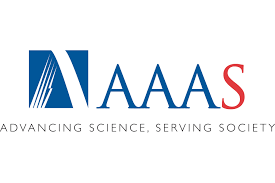On 25 July 2016, Natasha Udu-gama, Director of Community Partnerships for the American Geophysical Union’s Thriving Earth Exchange, moderated a panel on “Effective Scientific Partnerships with Frontline Communities” for the AAAS Science and Human Rights Coalition Meeting: Climate Change and Human Rights. The Coalition meetings serve as an avenue for scientists, engineers, community leaders, and health professionals to discuss with human rights leaders and policy makers issues that affect science and human rights worldwide.
Natasha spoke about TEX’s mission “to promote community science and to connect community leaders with volunteer Earth and space scientists who can help advance community resilience around climate change, natural hazards, natural resources and sustainability”. She spoke about how TEX identifies scientists with the right expertise to address community challenges through the AGU network and pairs them with communities that struggle to discover solutions to environmental challenges. Research – and the publication of research – has long been a priority for scientists of all disciplines. Natasha believes that TEX has an important role to play; by bridging the gap between scientists and communities becomes possible to share and apply scientific knowledge with communities vulnerable to the impacts of environmental changes.
Natasha further discussed the importance of scientific partnerships by addressing the three panelists with a series of questions.
Julie Maldonado, Director of Research for the Livelihoods Knowledge Exchange Network (LiKEN) and co-organizer of Rising Voices: Collaborative Science with Indigenous Knowledge for Climate Solutions, believes that in order to facilitate effective scientific partnerships we have to determine “how to create a space that enables ideas to flow equally across the table. Because things are [evolving], sometimes knowledge is not always applicable. Communities are looking for data and information needs that they do not necessarily have”.
Juan Declet-Barreto, a Fellow of the Climate and Energy Program and the Center for Science and Democracy at the Union of Concerned Scientists, believes that “engaging community science partnerships help amplify the voice of communities”. Lack of access to scientific information or the inability to interpret technical information excludes these communities from important policy decisions whose outcomes impact them. His organization is working with community groups and scientists to learn how to build successful partnerships. UCS – with the input of the Thriving Earth Exchange – has published a guide called “Scientist- Community Partnerships: A Scientist’s Guide to Successful Collaboration“. This guide helps scientist and community leaders develop strong and mutually advantageous partnerships.
Vivek Maru, the founder of Namati, a global grassroots legal empowerment organization, pairs paralegals with impoverished communities to help them understand the laws of their country. He believes that the law is not enough. Vivek seeks to understand how we can “source credible scientific information that can be presented in simple terms that will empower communities to negotiate [in a position of strength].”
Overall, sharing data with communities is one of the best methods to mitigate the impact of those left vulnerable to environmental factors. Building scientific partnerships will strengthen relationships with communities moving forward. Click here to learn more about the panel session.






